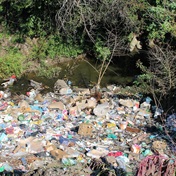
Netflix, Showmax, Apple TV and other forms of on-demand viewing have revolutionised the way we view and engage with in-home entertainment.
Just a decade ago, if you wanted to watch a movie you either checked out the showtimes at your local cinema or fought with your family over what programme to watch, before securing yourself a prime spot on the couch. You had to change your own schedule to match that of the programme available.
An Atlantic Podcast aired in June 2019, How has Netflix changed entertainment? explores how Netflix and streaming has changed our expectations for out of home entertainment. How will our addiction to the streamed and on demand TV, no doubt exacerbated by the lockdown, change our expectations of what we want from out-of-home (OOH) entertainment experiences when we’re allowed back outdoors?
Individual preferences tops
In-home entertainment used to be a group activity. You shared a couch and a screen. Now we each have our own screen, and even if we all end up watching the same programme, its rarely at the same time. Our individualised TV watching behaviour means that many households have multiple screens being viewed at the same time, with different movies, each tailored to the taste of mom, dad, teenager or gran. The cultural experience of watching a show together no longer exists.
If a shared cultural experience does not happen in the home, how can it be expected to suddenly become a desirable activity out of the home?
OOH entertainment suffers a high energy, time and financial cost. Much of that additional cost brings no benefit to the OOH experience. It requires energy to leave home, find parking, agree on when and where to meet and to walk around a leisure experience. Museum fatigue is a well-known phenomenon.
Then there is the additional financial and time hurdle to overcome. The time and financial costs associated with traveling to and from the experience adds no additional benefit to the experience itself. You may spend an hour in a museum or zoo, but have to factor in an additional hour each side for travel - for no experiential benefit. This is already particularly relevant to South African consumers, who are often geographically distanced from safe OOH leisure experiences. This is the reason shopping centres have been viewed as entertainment venues - for many South Africans it’s the only safe ‘leisure’ experience that is accessible.
Consumers must risk a high entry fee with no easy switch-out of the experience if it proves not to be what we wanted (and often we are not quite sure of what we want). On demand TV is paid upfront and you simply click through to the next show until you find what you need. This is not so easy to do when you have paid an entry fee for a museum or theme park.
During lockdown periods, museums and galleries have already become wise to this, with proliferating virtual tours proving to be hugely popular. For consumers increasingly used to entertainment on demand, this may need to be a trend that continues.
We want what we already like
On-demand entertainment feeds us what we want with minimal pushing of our boundaries to try something new. The next episode of a series downloads before the closing titles are finished. The algorithms suggest titles and shows that are similar to what we have seen before, which we ‘know’ we will enjoy. It’s hard to stumble on something completely out of your comfort zone.
This is far removed from the curated show at a museum that is designed to stretch our curiosity and interest - the opposite of the dumbing down effect of feeding viewers only what they want based on their individual viewing history.
Part of the joy of a day out is that you don’t quite know what you will experience. But visitors are demanding highly replicable experiences that are the same whenever they go, as seen in the rise of chain restaurants and chain attractions like Madame Tussauds.
This is partly to get the must-have Instagram shot, partly because we are used to getting exactly what has been promised and partly because we do not value chance serendipity anymore. This is why game viewing and bush experiences are so exciting; one can never guarantee a sighting. But even here, we’ve become less reliant on chance, with game farms tracking the Big Five, and the increasing use of sighting apps. We’re no longer expanding our horizons - instead allowing ourselves to be fed things we know we already like. It limits the courage to try new things.
Trends have already been shifting for some time. But the pandemic has crystallised emerging behaviours. As South Africa emerges from lockdown, shopping centres and other out-of-home entertainment venues will need to explore innovative ways to create a wider leisure experience that speaks to the new habits - and demands - formed by months of continuous on-demand entertainment.
Sabine Lehmann is the Founder and CEO of Curiositas, a specialist attractions and tourism futures consultancy. She was previously Managing Director of Table Mountain Aerial Cableway and Chief Operations Officer of the Zeitz Museum of Contemporary Art Africa. She is founder and Chair of the African Association of Visitor Experiences and Attractions. Lehmann holds an MPhil in future studies from the University of Stellenbosch Business School and an MBA from UCT’s Graduate School of Business. Views expressed are her own.




 Publications
Publications
 Partners
Partners











